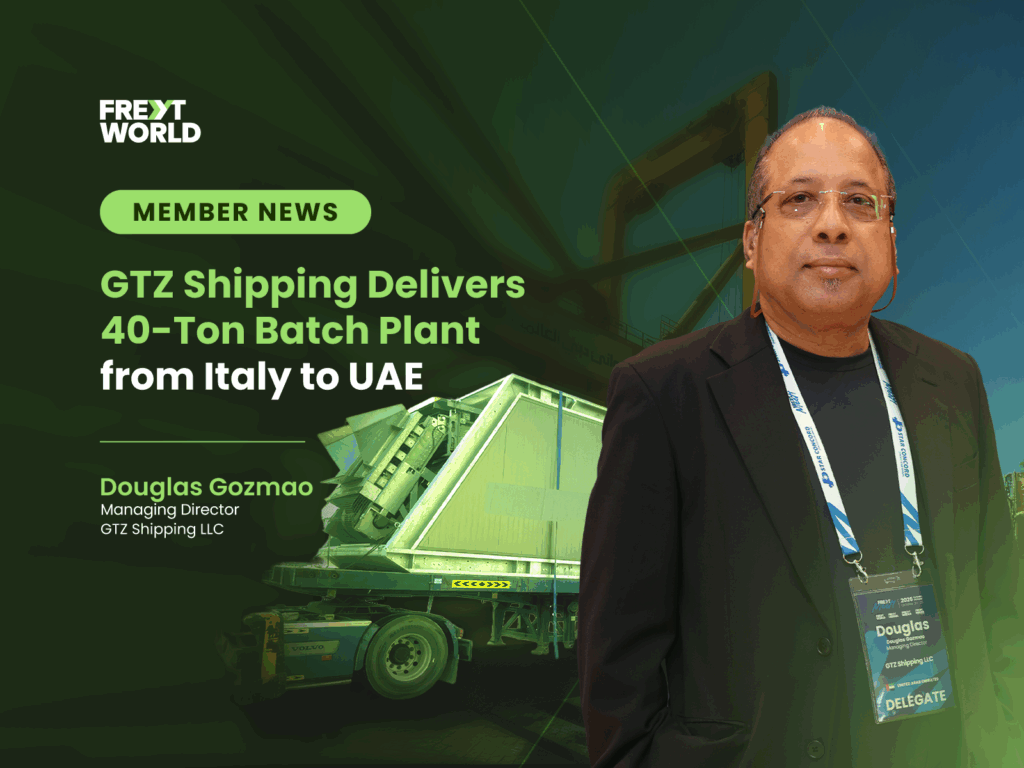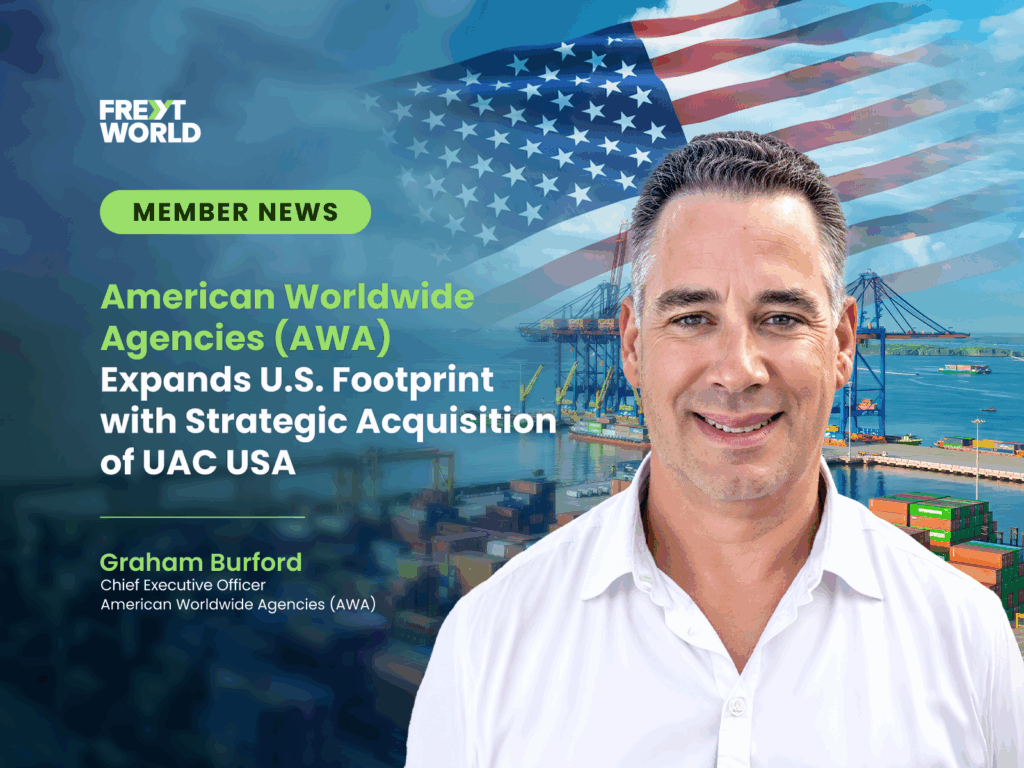By Santosh Tirodkar, Group Managing Director, Polestar International Shipping LLC
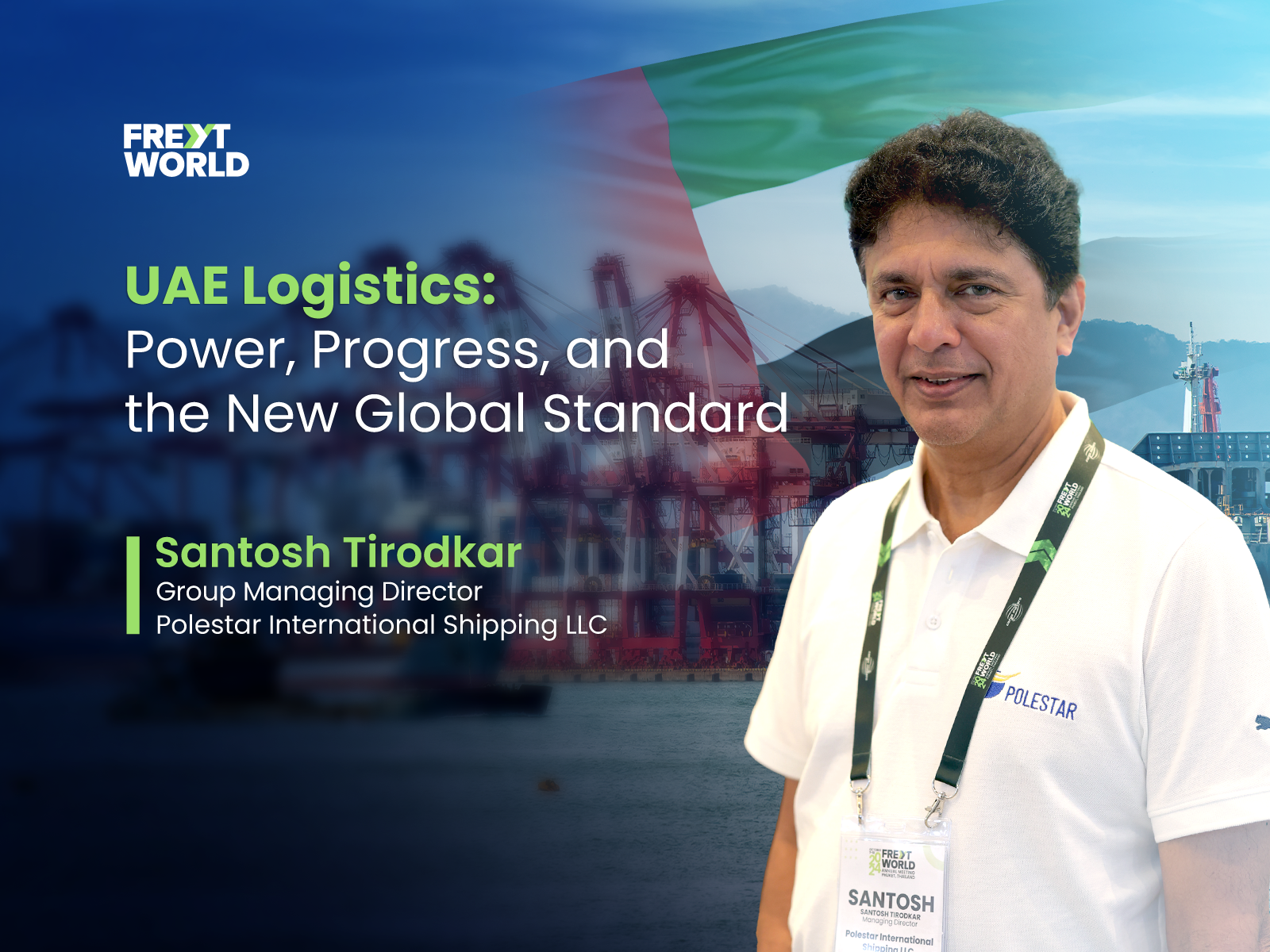
If you want to see where logistics is heading, look to the United Arab Emirates.
Here, the conversation isn’t about catching up—it’s about setting the agenda. The UAE’s approach to ports, rail, and multimodal connectivity is already the benchmark, and anyone serious about global trade knows it. This is not just regional dominance; it’s a model for how logistics can be done anywhere in the world. Over the past two years, the UAE has accelerated its investments, launched transformative projects, and positioned itself as the undisputed hub for international trade and supply chain innovation.
Jebel Ali: The Port That Defines Excellence
Jebel Ali isn’t just a port; it is the standard. Its cranes are some of the most advanced in the world, capable of handling the largest vessels with speed and precision. The automation and digital integration at these terminals make round-the-clock operations not just possible, but a routine. While others debate the merits of lifting two containers at once, here, the focus is on results—consistent, efficient, and ahead of the curve. The port’s throughput numbers are staggering: in 2024, it handled over 14 million TEUs, cementing its place among the world’s top three container ports. This is not just about volume; it’s about reliability, speed, and the ability to adapt to the ever-changing demands of global trade.
Sustainability and Innovation in Action
DP World’s leadership at Jebel Ali is undisputed. In 2025, trials for hydrogen-powered cranes were launched, not as an experiment, but as a statement. Sustainability is not an afterthought; it is a core part of operations. The message is clear: the UAE is not just following best practices—it is creating them. DP World’s commitment to green technology is not limited to cranes. The company is investing in electrification, renewable energy, and digital platforms that monitor and reduce emissions across the supply chain. This is a holistic approach to sustainability, one that is rare in the logistics sector but is becoming the norm in the UAE.
Etihad Rail: Redefining Freight Movement
Etihad Rail is another example of thinking big and acting decisively. The network now connects all seven emirates and is fully operational for freight, able to move 60 million tons of goods each year. The integration of rail with Jebel Ali Port is a masterstroke, reducing congestion and costs while setting a new standard for multimodal logistics. The planned UAE-Oman rail link, with an estimated investment of $3 billion, will further extend the UAE’s reach and strengthen its position as a regional logistics powerhouse. While the potential for passenger services is on the horizon, the focus for now is on freight—and the results are already visible. The rail network is expected to reduce road traffic by millions of truck trips annually, cutting emissions and improving efficiency across the supply chain.
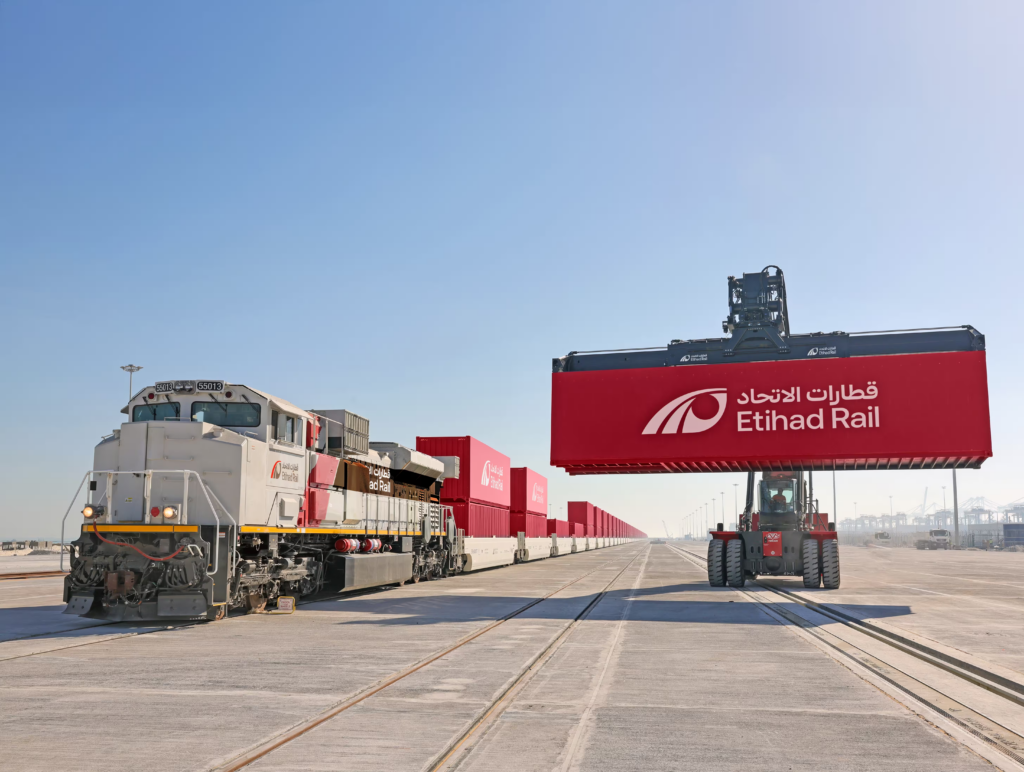
Building a Multimodal Ecosystem
Multimodal connectivity is not a buzzword here; it is a reality. Jebel Ali’s integration with Al Maktoum International Airport and the Dubai South development is a deliberate strategy. The vision is clear: create a logistics ecosystem where port, rail, and air transport work together seamlessly. This is not about convenience—it is about control and efficiency. The Dubai South logistics zone, which houses both Jebel Ali Port and Al Maktoum International Airport, is designed to facilitate the smooth transfer of goods between different modes of transport. The result is a supply chain that is faster, more reliable, and more resilient than anywhere else in the region.
Abu Dhabi’s Khalifa Port is another piece of the puzzle. With its deep-water access and integration with the Khalifa Industrial Zone, it is a key player in the UAE’s logistics network. In 2024, Khalifa Port moved over 3 million TEUs and is set to grow further as new investments roll out. The port’s advanced automation and digital systems mirror those at Jebel Ali, ensuring that the UAE’s logistics infrastructure is not just world-class, but consistently improving.
Sustainability as a Core Principle
Sustainability is non-negotiable. Hydrogen-powered cranes are just the beginning. Digitalization and automation aren't just trends—logistics teams are already using them to monitor operations in real time and make data-driven decisions. The UAE’s logistics sector is not just efficient; it is resilient and built for the future. The country’s commitment to sustainability is reflected in its ambitious climate goals, including a pledge to achieve net-zero emissions by 2050. Logistics is a key part of this strategy, and the UAE is leading by example.
Market Trends and Economic Impact
The numbers speak for themselves. The crane and hoist market in the UAE is projected to expand steadily through 2031, driven by automation and digitalization. The global port crane market is growing at a CAGR of 6.0% from 2023 to 2030, and the UAE is at the forefront. The regulatory environment here is stable, and government policies are proactive, ensuring that logistics remains a priority.
Consider the broader economic context. The UAE’s logistics sector is a critical driver of GDP growth, contributing billions of dollars annually and supporting thousands of jobs. The sector’s success is not just a matter of infrastructure; it’s also about talent, innovation, and a culture of excellence. The UAE is home to some of the world’s most skilled logistics professionals, and its universities and training programs are producing the next generation of supply chain leaders.
Navigating Challenges and Seizing Opportunities
Challenges exist, but they are not roadblocks—they are opportunities. High initial investment in advanced crane systems and digital infrastructure is expected, but it is also justified. The transition to cleaner energy sources is underway, and the results are already evident. The UAE’s strategic location, advanced infrastructure, and commitment to innovation ensure that it will remain the global leader in logistics.
Digital Trade and the Next Wave of Innovation
The UAE is also a pioneer in digital trade. The country is investing heavily in blockchain technology, artificial intelligence, and the Internet of Things to create smart, connected supply chains. These technologies aren’t just in testing—companies are already deploying them at scale and seeing real-world results. For example, logistics teams use blockchain to streamline customs clearance, reduce fraud, and improve transparency across the supply chain. They use AI to optimize routing, cut fuel consumption, and speed up delivery times. The UAE is not just adopting these technologies—it is leading their development and implementation.
The impact of these innovations is felt across the region and beyond. The UAE is a gateway to the Middle East, Africa, and South Asia, and its logistics infrastructure is a critical enabler of trade and economic growth. The country’s ports, rail network, and airports are not just local assets—they are global resources, connecting markets and enabling commerce on a scale that few others can match.
Setting the Standard for the Future
The future of logistics is being written here, in the UAE. Anyone who wants to be part of that future needs to understand what is happening here—and why it matters. The UAE is not just setting the standard for logistics in the region; it is setting the standard for the world. It combines vision, investment, and execution like no other—and the results speak for themselves.
The country’s leadership has set ambitious targets for the next decade, including further expansion of port capacity, continued investment in rail and multimodal infrastructure, and a renewed focus on sustainability and digital innovation. The UAE is not just preparing for the future—it is shaping it.
A Model for Global Logistics
The UAE’s logistics sector is a model of what is possible when vision, investment, and execution come together. The country’s ports, rail network, and multimodal infrastructure are setting new standards for efficiency, reliability, and sustainability. The UAE is not just leading the logistics sector—it is defining it.
The future of logistics is here, and it is being written in the UAE.
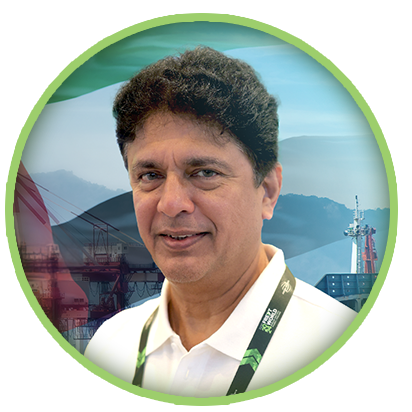
Freyt World Blog Contributor
Freyt World is a global logistics network uniting members from around the world. Our mission is to revolutionize global logistics through collaboration and innovation. Our platform goes beyond networking, enabling members to excel and grow together, featuring articles by logistics professionals for their peers. This series will cover industry-relevant issues and news, providing valuable insights for professionals in the field.
